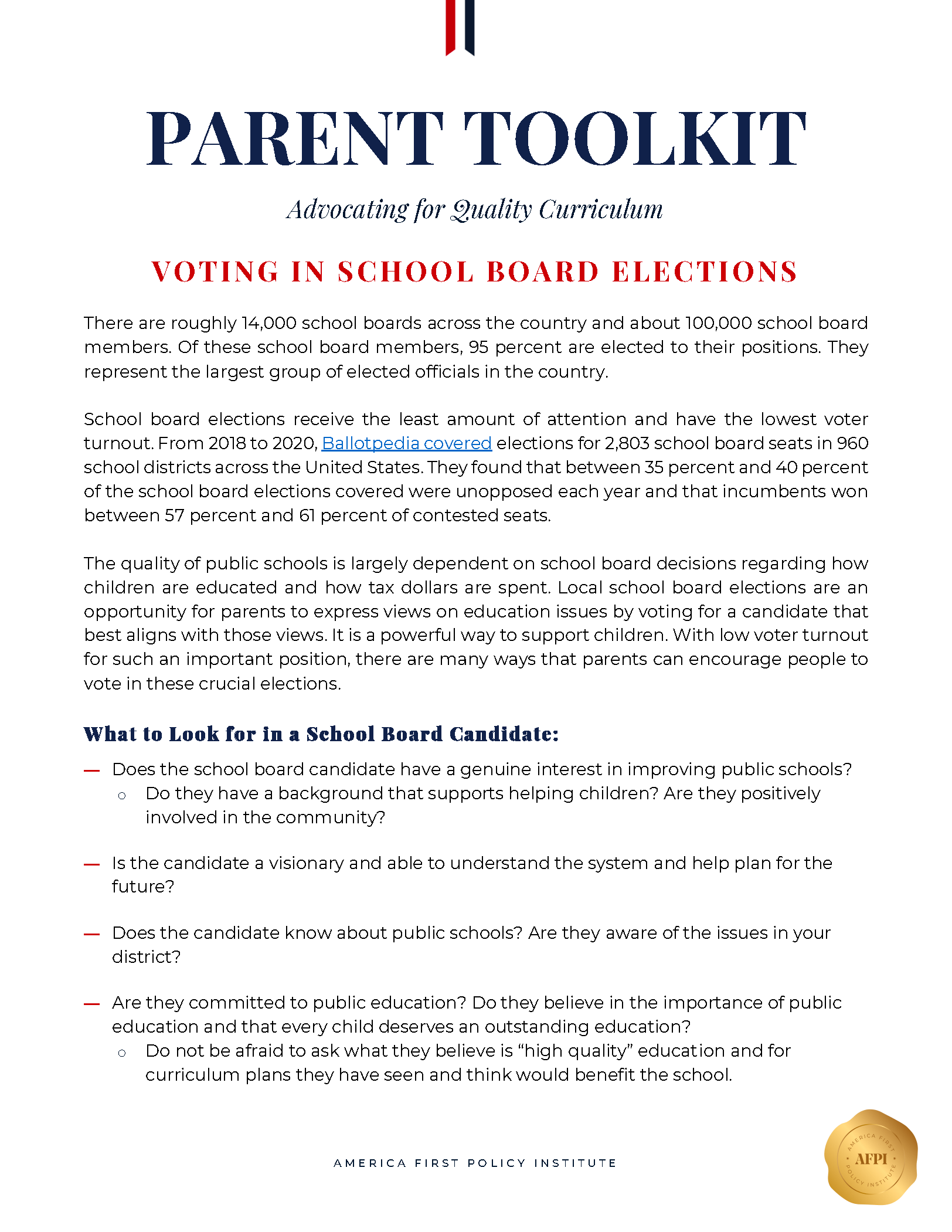Parent Toolkit - Advocating for Quality Curriculum: Voting in School Board Elections
There are roughly 14,000 school boards across the country and about 100,000 school board members. Of these school board members, 95 percent are elected to their positions. They represent the largest group of elected officials in the country.
School board elections receive the least amount of attention and have the lowest voter turnout. From 2018 to 2020, Ballotpedia covered elections for 2,803 school board seats in 960 school districts across the United States. They found that between 35 percent and 40 percent of the school board elections covered were unopposed each year and that incumbents won between 57 percent and 61 percent of contested seats.
The quality of public schools is largely dependent on school board decisions regarding how children are educated and how tax dollars are spent. Local school board elections are an opportunity for parents to express views on education issues by voting for a candidate that best aligns with those views. It is a powerful way to support children. With low voter turnout for such an important position, there are many ways that parents can encourage people to vote in these crucial elections.
What to Look for in a School Board Candidate:
- Does the school board candidate have a genuine interest in improving public schools
- Do they have a background that supports helping children? Are they positively involved in the community?
- Is the candidate a visionary and able to understand the system and help plan for the future?
- Does the candidate know about public schools? Are they aware of the issues in your district?
- Are they committed to public education? Do they believe in the importance of public education and that every child deserves an outstanding education?
- Do not be afraid to ask what they believe is “high quality” education and for curriculum plans they have seen and think would benefit the school.
- Is the candidate committed to a high-quality curriculum?
- Does the candidate share the same values as you, and are they committed to preserving those values in local schools?
- Make sure to look for whether the candidate is being funded by a group or individual that supports divisive concepts.
- Are they focused on putting students front and center and not special interests?
More Resources
July 06, 2023
AFPI Leads the Charge in Most Historic Year for School Choice Progress
At the America First Policy Institute (AFPI), we believe that the transformative progress on school choice will help prepare Americans for the rights and responsibilities of citizenship.
April 04, 2023
FACT SHEET: Colorado HB23-1003 Gives Parents Less Control Over Their Child’s Education
“I do not believe in co-parenting with the government, and I never will. Parental rights are a God-given blessing. I am deeply saddened to see our country even debating who should…
March 24, 2023
